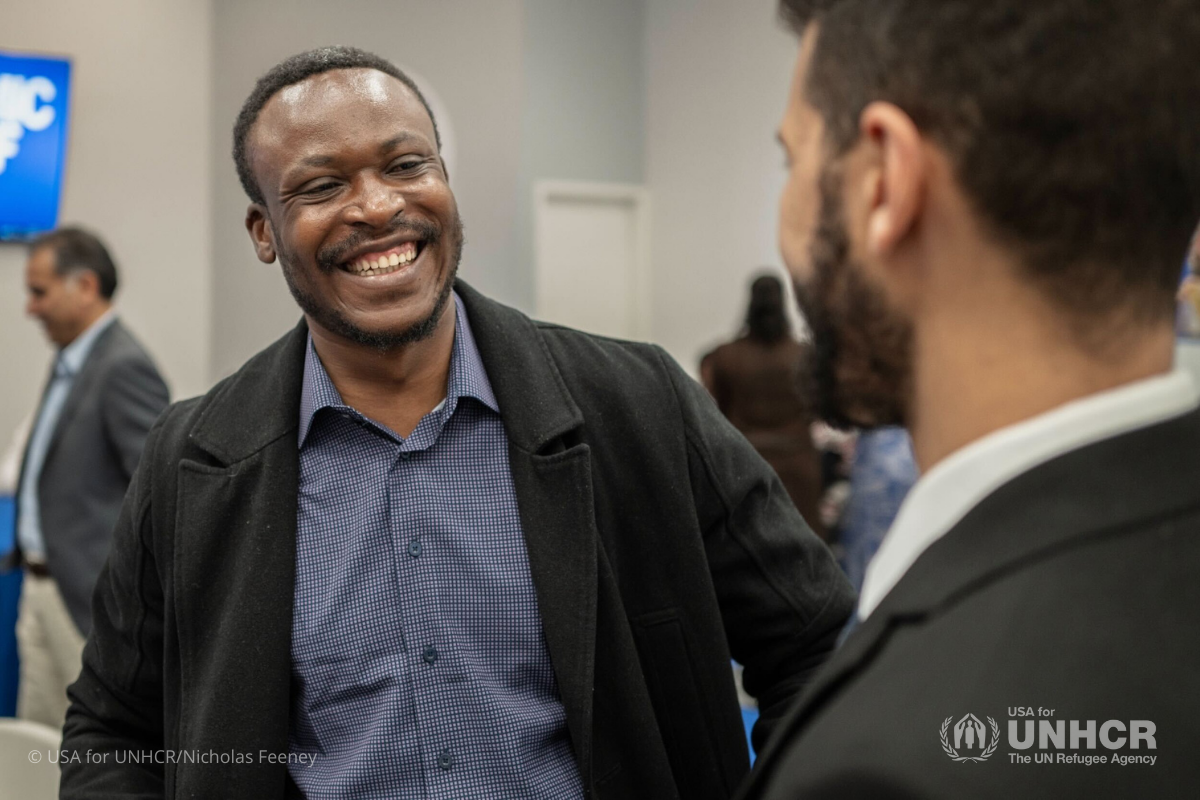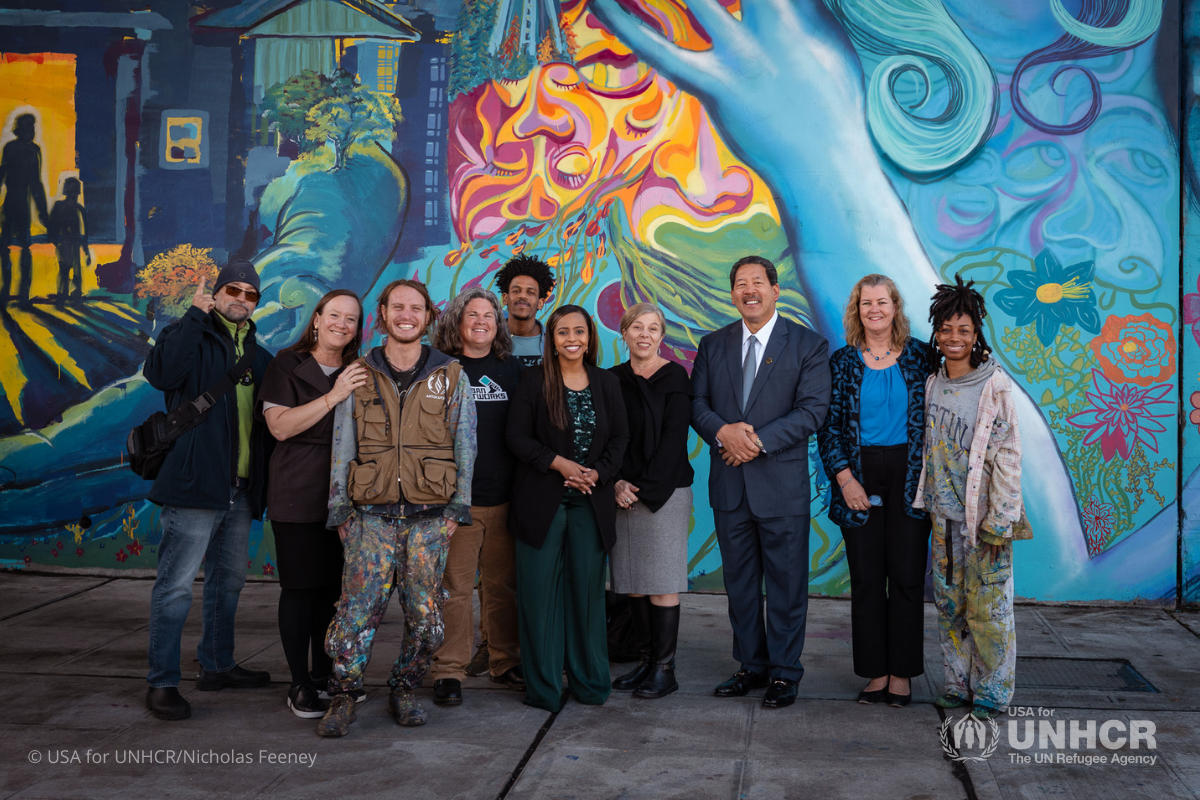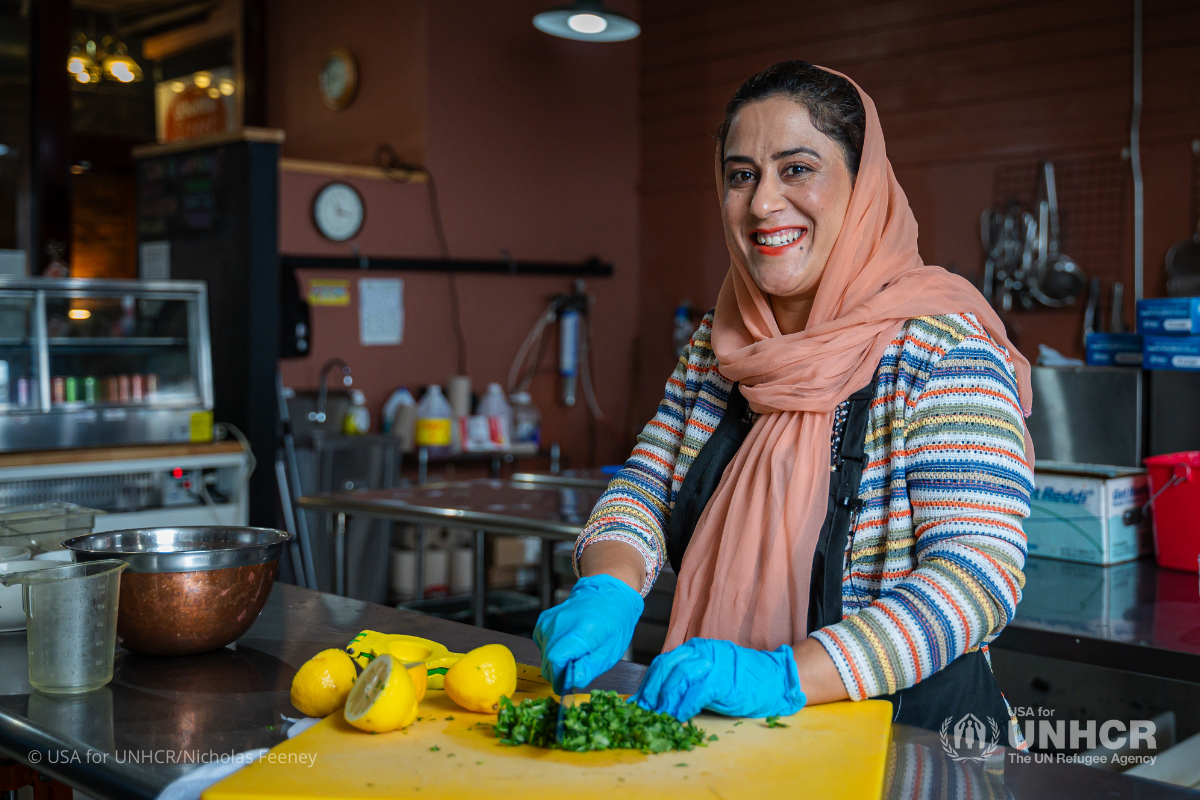Five Things to Know About Refugees in Seattle
Seattle, affectionately known as “Emerald City” and the “Coffee Capital of the World” for its lush evergreen forests and prominent coffee culture, is a picturesque city on Puget Sound in the Pacific Northwest. As Washington State’s largest city and home to the headquarters of Microsoft and Amazon, Seattle is one of the fastest growing cities in the United States.
Tens of thousands of people move to Seattle each year, including refugees who are rebuilding their lives after escaping violence and persecution. Learn more about the history of refugees in Seattle, how the city continues to welcome them today and the important contributions they’re making to their new community.
1. Why are refugees resettling in Seattle?
Seattle is the largest city in the Pacific Northwest and Washington State, with a population of 797,700 people. Since its founding in the 1850s, the city has transformed from welcoming pioneers from across the country to newcomers from all over the world. Today, Seattle is home to a large and diverse refugee and immigrant community, with nearly 40 percent of the metropolitan area population being foreign-born or with at least one foreign-born parent.

Washington historically ranks as one of the top 10 refugee resettlement states in the United States. Between 2000 and 2020, Seattle's immigrant population grew 47 percent compared to 30 percent for the overall population.
As one of the largest and most affluent urban centers in the United States, Seattle’s job market provides ample economic opportunities for refugees to integrate into the local economy. Surrounded by water, mountains and forests, the city provides newcomers and their families with a high quality of life as they adjust to a new environment. Seattle is also home to several refugee resettlement agencies and services that provide immigrants, refugees, asylum seekers and new arrivals with housing support, legal services and language resources.
"The city of Seattle is a major city in this country, and I think we can be a shining example of how we get better and we improve lives and we lead with a spirit of compassion and love," said Mayor of Seattle, Bruce Harrell. "And to me, that's what welcoming refugees and immigrants is all about – leading with compassion and love and bringing out the best in everybody.”
2. What is the history of refugee resettlement in Seattle?
Seattle has long been considered a city of transplants, with people born outside of Washington making up the majority of the city's population throughout its recorded history. From the Klondike Gold Rush in the late 1890s, which brought people from China, Japan and the Philippines, to the decades following World War II, which saw an influx of families from Mexico, El Salvador, Guatemala and Nicaragua — the city owes its rich and diverse cultural makeup to the waves of immigrants and refugees who have settled over the decades.
While Seattle has always received newcomers from other countries, it was the Vietnam War that put the city on the map for refugee resettlement. When the Vietnam War ended in 1975, hundreds of thousands of Vietnamese refugees and asylum seekers were evacuated and resettled to the United States. Washington state welcomed 500 Vietnamese refugees, and thousands more eventually resettled in subsequent years.
According to Chandler Felt, a former demographer for the King County Executive’s office, this historic moment changed long-term immigration trends in the county where Seattle is located, and across the state. “So that [resettling of Vietnamese refugees] kind of established a beachhead of recognition that King County was a welcoming place for refugees and immigrants. It really started to increase the rate of immigration,” Felt said. “Since then we’ve been getting refugees and immigrants from all different parts of the world.”
3. Where are refugees in Seattle arriving from?
More than 30,000 refugees from over 70 countries have resettled in Washington state through the U.S. Refugee Admissions Program over the last decade. The withdrawal of United States troops from Afghanistan in August 2021 was another moment when Washington state showed its welcoming spirit — more than 3,000 Afghans were welcomed to Washington in the first six months of 2022, nearly three times the number of arrivals for all of 2021.

By June 2024, 2,788 newly resettled refugees were welcomed to Washington. Some of the top countries of origin for refugees arriving in Washington include Afghanistan, Ukraine, Syria, the Democratic Republic of the Congo and Venezuela.
4. What support is available to refugees in Seattle?
Washington’s strength as a welcoming state lies in its progressive policies supporting immigrants and refugees and assistance provided by local refugee resettlement agencies.
The Office of Immigrant and Refugee Affairs (OIRA) was established in Seattle in 2012 to help improve the lives of Seattle's immigrant and refugee residents. OIRA works to strengthen immigrant and refugee communities by engaging them in decisions about Seattle's future and improving city programs and services to meet their needs. OIRA supports immigrants and refugees in applying for citizenship, improving their English-language skills, providing free legal assistance and much more. In addition to OIRA, several resettlement agencies in Seattle and across the state support refugees, including the International Rescue Committee, Jewish Family Service, World Relief and Refugee Women’s Alliance.
The City of Seattle advocates for immigrants and refugees by joining coalitions in support of immigrants and refugees and affirming their commitment to being a welcoming city.
Seattle is a member of two nationwide coalitions supporting immigrants and refugees: Cities for Action, a coalition of nearly 200 U.S. mayors and county executives advocating for pro-immigrant federal policies, and Cities and Counties for Citizenship, a major national initiative aimed at increasing citizenship among eligible U.S. permanent residents.
In 2017, Seattle affirmed its commitment to refugees by passing a Welcoming Cities resolution that promotes policies and programs that foster inclusion for all and serve its residents regardless of their immigration or refugee status.
5. How are refugees giving back in Seattle?
Seattle’s immigrant and refugee residents foster economic growth and contribute to the local economy while adding to its cultural vibrancy. According to a 2019 New American Economy report, more than 51,452 immigrant entrepreneurs reside in the Seattle metropolitan area. Through their spending power, immigrants and refugees in Seattle contributed over $31 billion to the local economy and paid over $12.7 billion in taxes.
Beyond their contributions to the local economy, refugees and immigrants bring rich cultures, customs and traditions that enrich their local communities and foster greater appreciation for diversity.

Resettled refugees like Tshishiku Henry are adding to the vibrant culture in Washington. When Tshishiku Henry was just a child, he was forced to flee his home in the Democratic Republic of the Congo. For nine years, Tshishiku and his family lived in the Dzaleka Refugee Camp in Malawi. At the camp, he founded a program to empower refugee children and unaccompanied minors by teaching them poetry, drawing, dancing and music. The program reached more than 1,000 children every year and was in part funded by UNHCR, the UN Refugee Agency. In 2018, Tshishiku was resettled to the United States.
Now, Tshishiku Henry is the Refugee Congress Delegate for Washington State, the Founder of Wide World For Refugee, and an Employment Case Manager and Equity Lead at a Seattle-based nonprofit organization.
Reflecting on his role as the Refugee Congress Delegate for Washington State, Tshishiku said, “I am honored to be part of this great organization representing Washington State’s refugees and immigrants. Serving refugees and immigrants has always been my passion. Serving the refugee and immigrant community is not just my moral obligation, it also brings me a sense of humanity. My hope is that everyone can feel the same sense of fulfillment as I do.”
Given the opportunity, refugees like Tshishiku can transform their new homes into more welcoming places for all. Seattle’s welcoming community is made possible by the immigrants and refugees who have called it home throughout the decades.
How can you help...
UNHCR, the UN Refugee Agency supports the full journey of refugees who have been forced to flee violence, war and persecution. Our donors help refugees in their greatest time of need with shelter, food, water and medical care, and their support builds awareness for resettled refugees living in the U.S. With your help, more refugees will have the opportunity to build peaceful lives and give their families a bright future.


